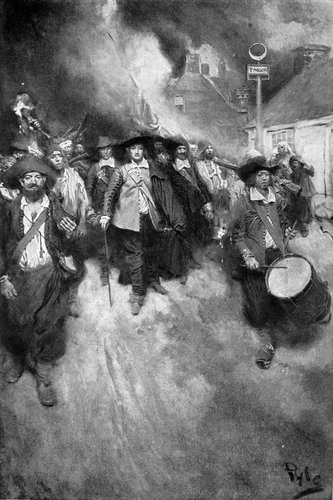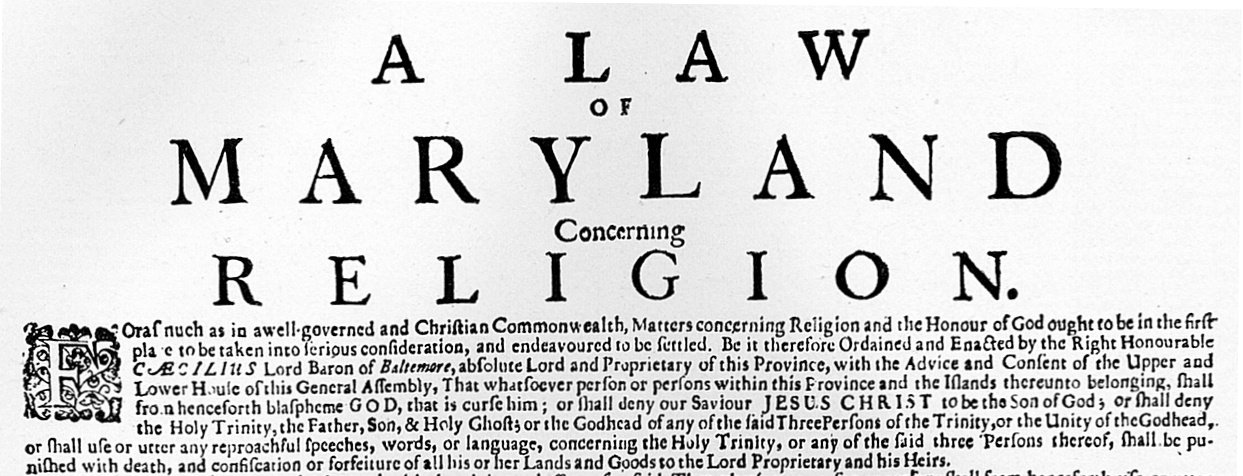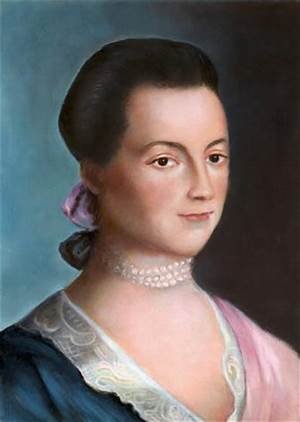1609 - Things get bad in Jamestown as they enter "The Starving Times"
Southern Colonies and New England Colonies Politics and Society
To what extent did democracy change during the Colonial Period?
1607 - Jamestown Colony is founded

The Virginia House of Burgesses
1619 The House of Burgesses is formed in Virginia.
The House of Burgesses was the first assembly of elected representatives of English colonists in North America. The House, which consisted of delegates elected by the colonists, was established by the Virginia Company, who created the body as part of an effort to encourage English craftsmen to settle in North America. The word burgess means an elected or appointed official of a municipality or the representative of a borough in the English House of Commons. The assembly’s role was to make all local laws and ordinances, ensuring they were not inconsistent with the laws of England
1620
The Mayflower Compact is signed by Pilgrims and other passengers aboard the Mayflower... Watch the video from 31:02 - 32:19.
New England Town Meetings
New England initially used a form of Direct Democracy call Town Meetings. In the early days, every man deemed a free inhabitant had a duty to attend Town Meeting. The town fined men for failing to attend without excuse.
If you were a male, free inhabitant, you had to be a taxpayer, property owner, demonstrate good character, a blameless life and honest conversation. Women weren’t allowed to vote, nor were vicious and abandoned persons, idlers, vagabonds and paupers.
The voters would each cast a vote to accept or reject local laws. For example, In 1637, a Town Meeting in Connecticut decreed that unmarried young men couldn’t live by themselves or with a family unless the town allowed it. Disobeying the law brought a fine of 20 shillings a week.
Town Meetings still occur in places all over New England including Plymouth, Massachusetts and Exeter, New Hampshire.
Did you know?
Americans have attached much of our national identity to the story of the Pilgrims and Puritans (The Pilgrims were eventually absorbed into the Puritan community). Many people use Town Meetings as evidence that they were a liberty loving people. Others describe the Puritans as using their local freedom to be more strict.
Puritans famously passed laws that regulated everyday and family life including:
- Duck hunting was illegal
- Drama, religious music, and gambling were illegal
- Long hair was outlawed
- Short sleeves were outlawed
- Finery of dress was outlawed
- Christmas was outlawed (for a short period of time)
Puritans were also into public humiliation and punishment.
- If you skipped church, you would be imprisoned, whipped, or both.
- Idolatry and Witchcraft were punishable by execution.
Puritan Names... Get Ready For It.
A wide variety of Hebrew names came into common usage beginning in 1560, when the first readily accessible English Bible was published. But by the late 16th century many Puritan communities saw common names as too worldly, and opted instead to name children after virtues or with religious slogans as a way of setting the community apart from non-Puritan neighbors. Often, Puritan parents chose names that served to remind the child about sin and pain.
Here are some of my favorites:
- Praise-God Barebone (The Barebone family really went all out)
- Jesus-Christ-came-into-the-world- to-save Barebone
- Die-Well Skyes
- Sorry-for-sin Coupard
- No-Merit Vynall
- Humiliation Hynde (He had two sons. He named them both Humiliation Hynde.
1676
1676 - Bacon's Rebellion - Bacon Rebellion occurred in Virginia in 1676 when white men, indentured servants and some Africans burned the Virginia colonial capital to force the government to crack down on Native Americans.

Changes to Voter Qualifications
As a result, voting qualifications were altered. Voting would be restricted to property owning males.
Rise of Slavery in the Colonies
Following Bacon's Rebellion, Virginia became the first state to establish Black Codes, which did away with indentured servitude and replaced it with permanent slavery for Africans. By the early 1700s each colony had enacted laws that not only regulated conditions for black slaves but also restricted the rights of free blacks. Black slaves and free blacks alike could not vote, testify in court against a white person, or marry a white person. Slaves were not allowed to carry arms or leave their homes without written permission.
1718

After nearly 70 years of religious tolerance called for in the Maryland Toleration Act ends, and the colonial government barred Catholics from voting.
1732
By 1732, the 13 colonies allowed only landowners or men who owned a substantial amount of personal property or paid taxes to vote.
1756

First Woman to Vote
Lydia Taft became the first woman to legally vote in the American Colonies, voting in a town meeting in Uxbridge, Mass., following the untimely death of her husband. The vote was on whether the town should support the French and Indian War effort. The laws were quickly changed barring women from voting.

